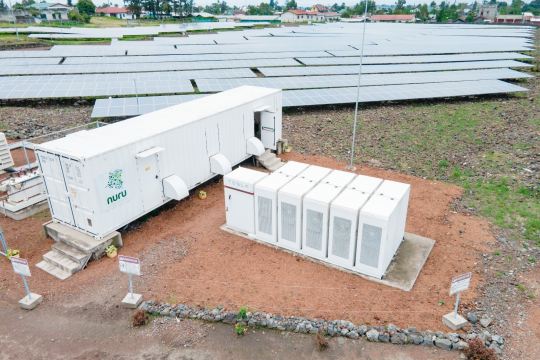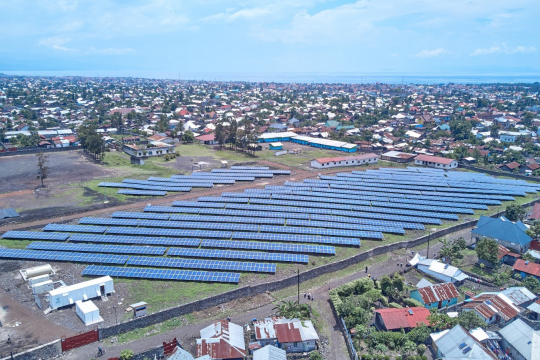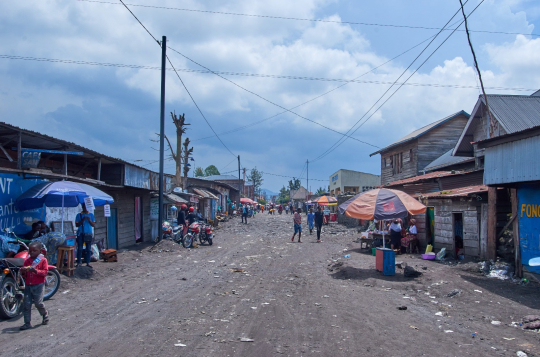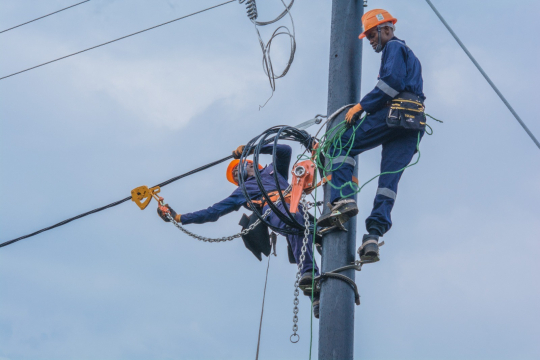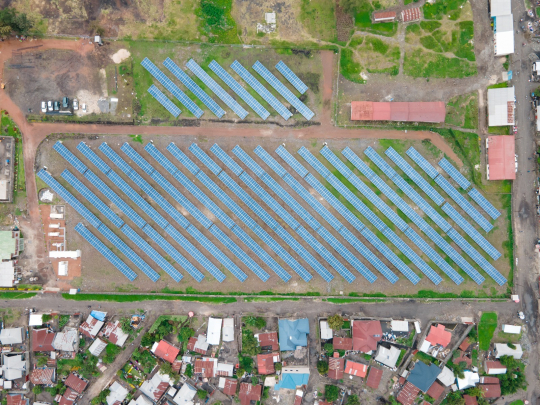A recent study compared how well a private solar mini-grid supplier provides electricity compared to a state-owned electricity company. It showed that the mini-grid outperformed the state-owned company significantly, which has interesting policy implications. The study was done in Goma in the Democratic Republic of Congo (DRC).
The study Do decentralized solar mini-grids improve energy access for small enterprises in Goma, Democratic Republic of the Congo? was conducted by Pamela Jagger, International EfD Associate and SETI fellow, alongside other researchers.
The city of Goma has been grappling with political instability and armed conflict for decades. Despite these challenges, it remains a hub of economic activity and trade with Rwanda. The city also faces significant energy challenges, with traditional grid infrastructure often failing to meet the needs of its growing population.
Mini-grid performed four times better
The study compared the performance of two energy providers in Goma: Nuru, a private energy service provider operating a decentralized solar mini-grid, and SNEL, the state-owned electricity company. The study findings reveal significant differences between the two providers, with Nuru offering superior electricity supply, quality, and customer satisfaction.
The authors used a case-control study design to assess the quality of electricity supply in a sample of 128 similar small enterprises in Goma, a city in eastern DRC. Nuru's solar mini-grid provided four times more daily electricity than SNEL, enabling businesses to operate for longer hours and use more energy-intensive equipment. The increased productivity and revenue generated by businesses offset the higher cost of Nuru's service.
Flexible and scalable solution
The study's findings highlight the potential of decentralized solar mini-grids to improve energy access and economic development in urban Africa. Exploring the potential for solar mini-grids is particularly important in areas reliant on hydro-power and aging grid electricity infrastructure for energy supply.
As cities in the region continue to grow, the demand for reliable and affordable electricity will increase. Decentralized solar solutions can provide a flexible and scalable approach to meeting this demand, particularly in areas with limited grid infrastructure.
Policies should encourage decentralized solutions
The authors recommend policy and regulatory reforms to promote the development of decentralized renewable energy projects. Governments should create an enabling environment for private sector investment, provide financial incentives, and streamline permitting processes.
“Understanding how decentralized solar mini-grids can support small businesses is extremely important. Small businesses struggle to succeed and grow without a regular and reliable power supply. Harnessing solar energy to support small enterprises in cities like Goma is an important step towards sustainable energy for all,” said Pamela Jagger.
“Nuru successfully provides clean and affordable energy to communities that had no grid access just a few years ago. The impact of reliable energy infrastructure cannot be understated, and we are already seeing positive results of this among small enterprises — the backbone of the local economy.”, said researcher and main author Joshua Thompson.
Additionally, investments in grid infrastructure and distribution networks are essential to ensure the integration of decentralized renewable energy sources into the overall energy system.
By leveraging the power of decentralized solar energy, African cities can unlock their economic potential and improve the lives of millions of people.
By Belén Pulgar.

